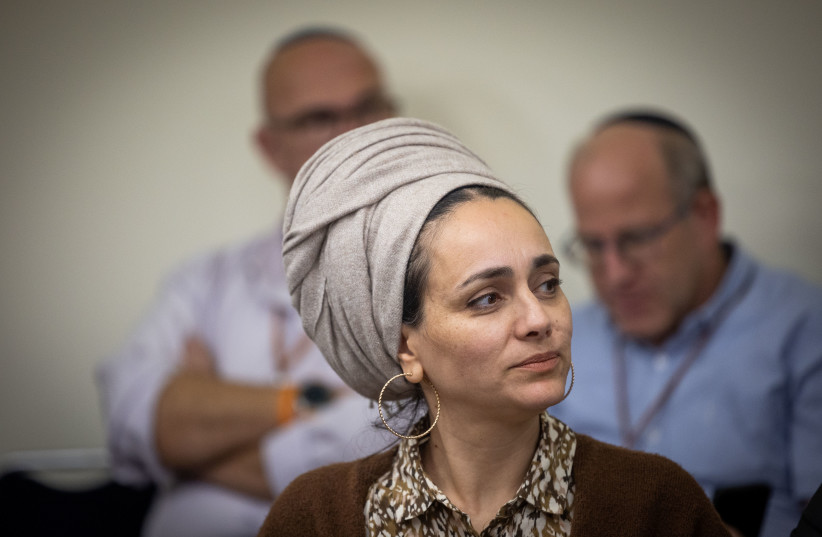Israel’s Knesset on Wednesday passed a preliminary bill proposal by Otzma Yehudit MK Limor Son Har-Melech that would count Israeli settlements in the Hebron area as being part of the Negev, thus making them eligible to receive certain benefits and state investments.
At issue is a bill from 1991 that formed the Negev Development Authority, which is part of the Negev, Galilee and National Resilience Ministry. The law defines the Negev as the area south of a certain geographical line that crosses Israel in the Beit Guvrin area. However, this line does not include the West Bank, which aaccording to Israeli law, is not a part of Israel. Son Har-Melech argued that the line should not discriminate against residents of the West Bank, who also live south of the same line, which crosses the West Bank at approximately Kiryat Arba and includes the region of southern Mount Hebron.
According to Son Har-Melech, the bill’s purpose was to rectify an “injustice.” Meaning, in her view, that these settlements were unjustly left out of the Negev Development Authority.
The head of the Negev, Galilee and National Resilience Ministry, Yitzhak Wasserlauf, said during the plenum debate that the bill was merely “declaratory,” as the settlements in question already received benefits since they were already considered to be under “threat.”
Opposition slams bill
The bill raised an outcry in the opposition with Knesset members arguing that it was an attempt to de-facto draw funds away from the Negev and give them to settlements that are not officially part of Israel. Further, they claimed that it was part of a larger effort to place civilian, non-military rule in the West Bank – and eventually annex the area to Israel.

Opposition leader and Yesh Atid Chairman MK Yair Lapid said during the debate over the bill, “For 50 years, the settlements have stolen money from the periphery and the Likud is silent.
“Why is the Likud silent while their money is being stolen? This is insane. It is insane to claim that Kiryat Arba is in the Negev. The Negev is the Negev, Judea and Samaria are Judea and Samaria, and the Galilee is the Galilee,” Lapid said.
Yesh Atid announced on Wednesday that in response to the coalition’s insistence on advancing the bill, they would filibuster every bill proposal in the plenum on Wednesday in order to delay proceedings as long as possible.
The bill eventually passed the preliminary vote 52-37. The two right wing parties in the opposition, Yisrael Beiteinu and United Right, voted in favor of the bill.
The bill proposal followed another move regarding the West Bank earlier on Wednesday by Defense Minister Yoav Gallant, who announced that Israeli civilians would be allowed to visit three sites in northern Samaria upon which once stood the settlements Kadim, Ganim, and Sa-Nur up until the Disengagement from the Gaza Strip in 2005.
The law that forbade Israeli citizens to visit the sites was repealed in March 2023, but Gallant soon after only authorized Israeli presence in the fourth site, Homesh.